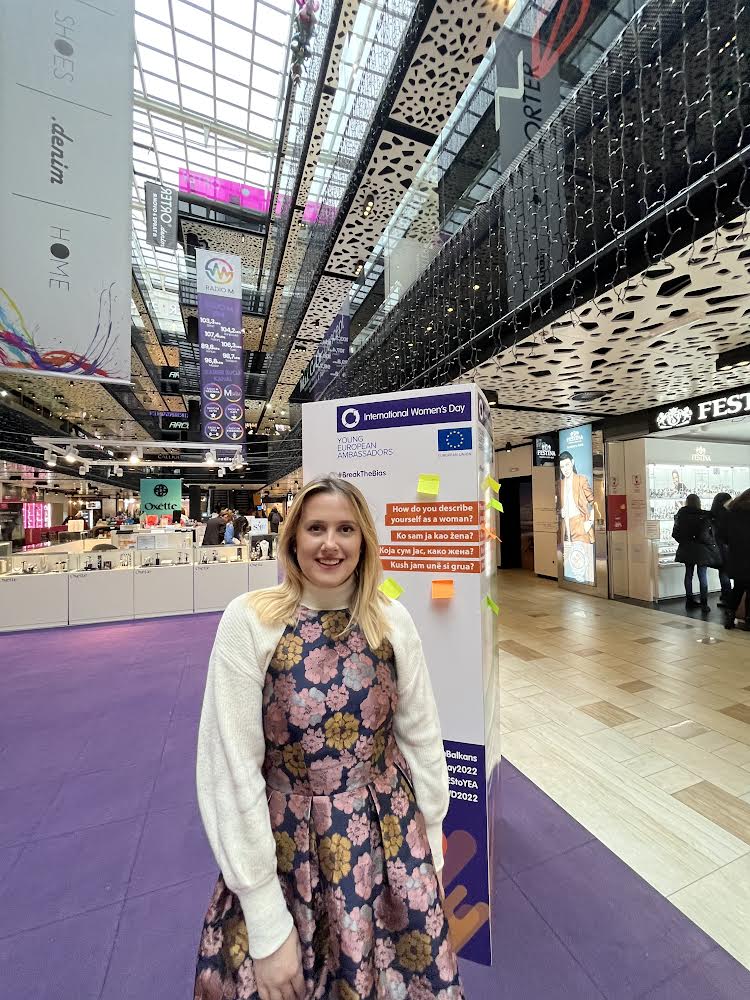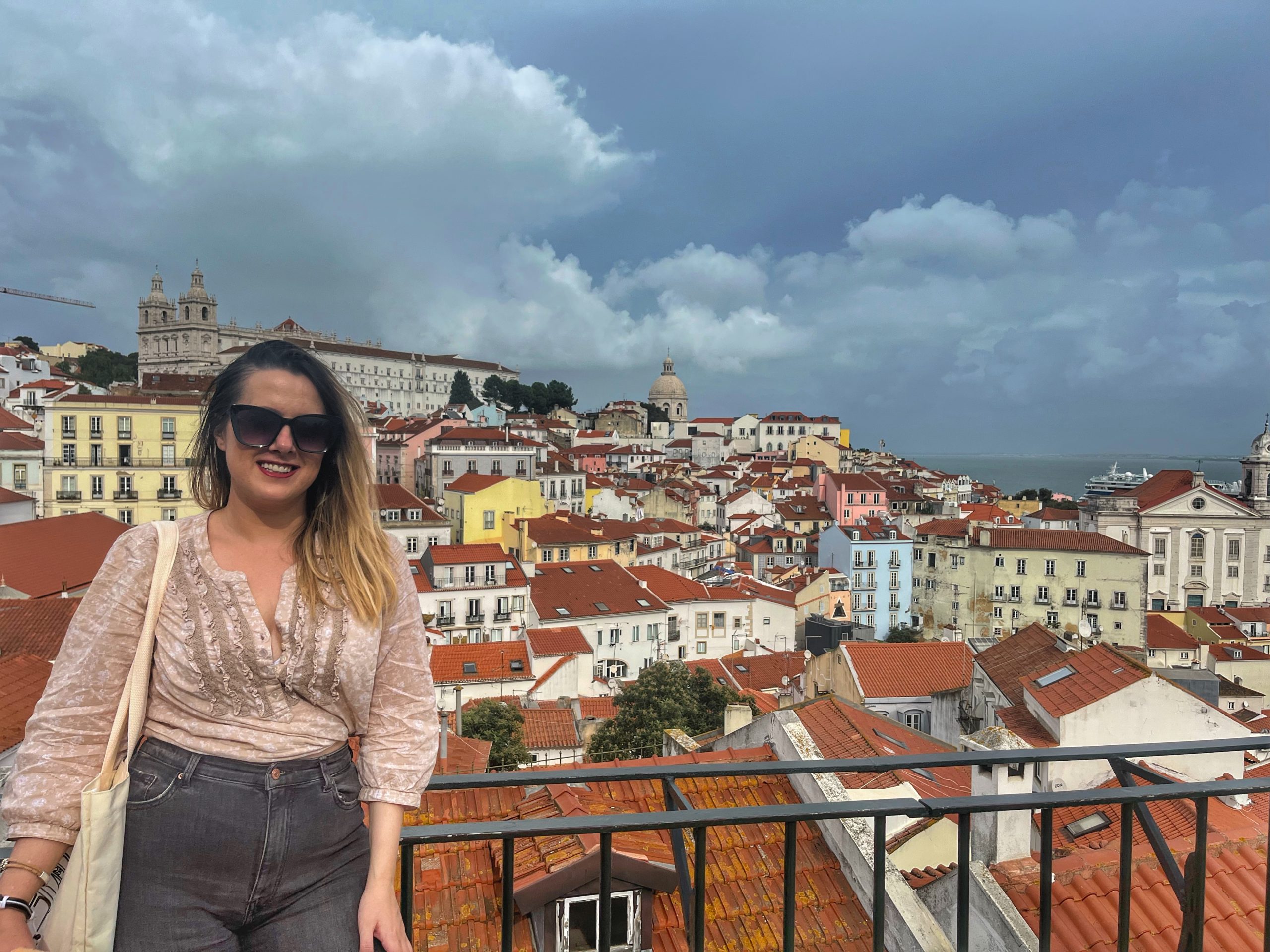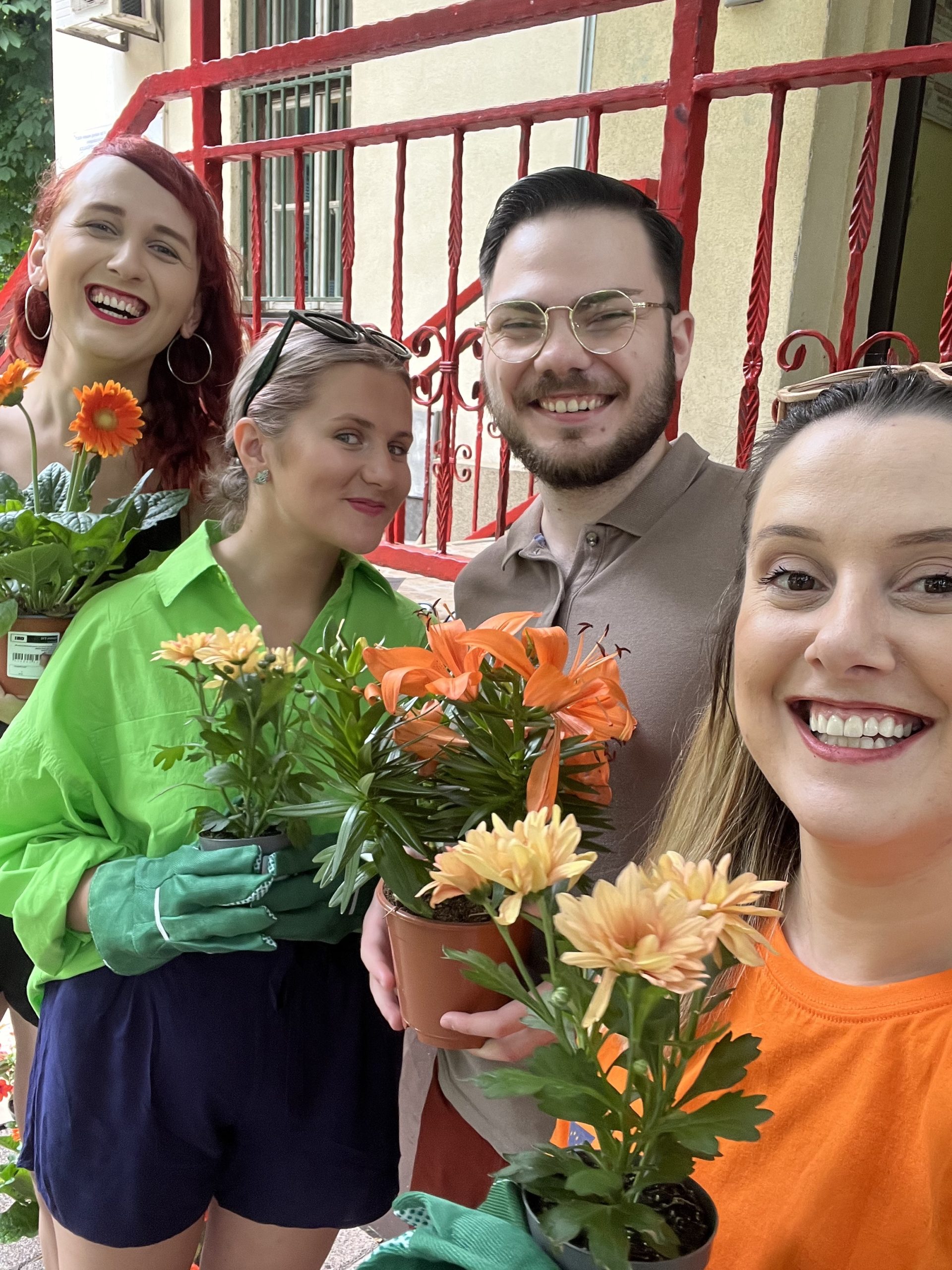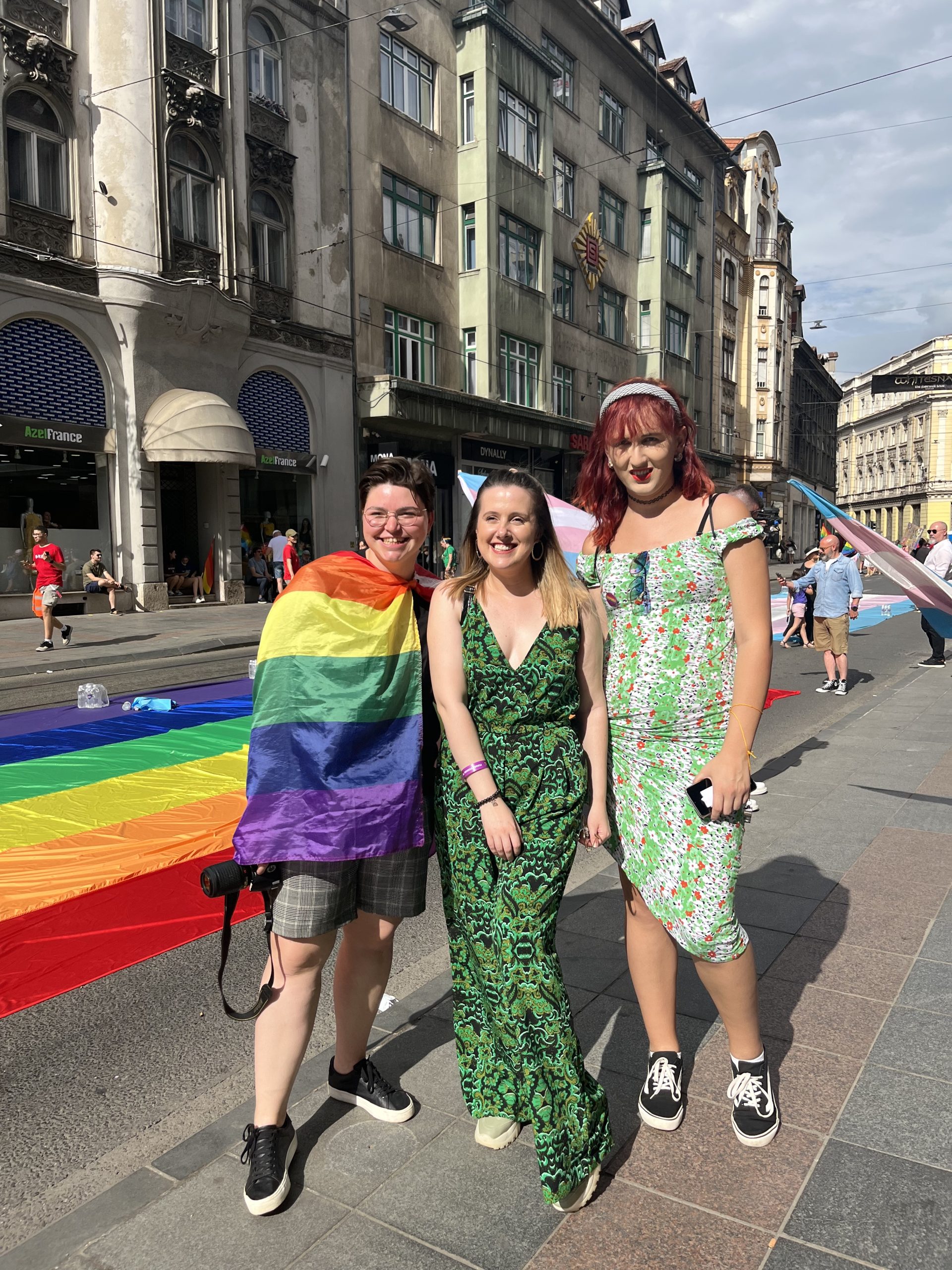
Dzulisa Otuzbir
Dzulisa is a 27-year-old activist from Novi Travnik, Bosnia, currently pursuing a Master’s degree in International Relations and Diplomacy at the University of Sarajevo, with a particular focus on European affairs. She has been part of Erasmus+ student exchanges, where she gained international cultural and social experience alongside her learning, and a large part of her life has been marked by volunteering engagements at the Hastor Foundation, where she worked with young people. We interviewed Dzulisa to hear about her passion for volunteerism, her professional activities, and her experience as part of the Erasmus+ exchange programme.
How did you get involved in the Erasmus+ exchange?
I have been part of two different types of Erasmus+ exchanges. One is the short mobility exchange that can take up to ten days, and the other is the student exchange through which I spent a semester studying in Lisbon. I found out about the student exchange in Portugal from the section on mobility and international exchanges on my faculty’s website. Before this I was not planning to take part in an exchange programme: it happened almost by chance. My university had a partnership with a faculty in Portugal and that is why I chose to go there and I got very excited when I was notified that I was accepted: there were so many applicants and to be among the people selected was a success and a privilege.

How was the experience and how did it help your professional development?
I spent five months studying in Portugal, so I had the opportunity to know more about their educational system, about the culture and about how they live. It was totally different and one of best experiences of my life. I found myself completely immersed in the local lifestyle, learning about Portuguese culture, language, customs, and – of course – cuisine. Apart from meeting students from all over Europe, who became my friends during and after the exchange, I formed a special connection with my Portuguese friends who became my second family. I feel that I always have space in their heart and homes, whenever I decide to visit Lisbon again.
It was as a result of this exchange that I got my first job in Sarajevo. In Portugal I was living with locals – with Portuguese and Brazilians who did not speak English. As I had to communicate with them on a daily basis, I ended up learning Portuguese. After I got back to Sarajevo, I was employed by a Portuguese company in Bosnia and Herzegovina and the knowledge of the language played a crucial role in this employment opportunity. In general, the experience in Portugal made me more familiar with an international business and cultural environment and I guess this experience is the most valuable thing for me from that trip.
You are also working as an intern at the Regional Anticorruption Initiative (RAI): tell us a bit more about this experience
Previously I was working for companies that did not have a strong social approach. At one point I realised that I no longer wanted to be a part of these corporate machines that care only about profit. As corruption is one of the biggest social problems in Bosnia and Herzegovina, I decided to join the Regional Anticorruption Initiative. I am very proud to be part of this organisation which has such a great mission not only in Bosnia and Herzegovina, but across the region. It is an amazing thing to know that you are contributing to an organisation which works on tackling one of the most pressing issues of the region.
After I started my internship, I got to see how it works and that it is a great contribution and not an easy mission at all. I am super happy that I am helping RAI to strengthen the institutional capacities of regional stakeholders in dealing with the problem of corruption.

Your education path has also been marked by volunteering engagements: what led you to volunteer?
I started volunteering when I was 12 years old, in the sixth grade. I was raised in this small rural community where we did not have many opportunities for volunteering or being an activist at all. The first volunteering opportunity that I came across was through the Hastor foundation which runs projects aimed at supporting children and young leaders: scholarships for school and university students, travel and participation in events, as well as special programmes for acquiring skills which are in high demand in certain sectors – educational opportunities for young people from disadvantaged backgrounds. Their mission also involved keeping these young people in the country once they graduated so as to avoid brain drain. I contributed to this mission for around 15 years in various volunteer positions including on the editorial board of their newsletter. The volunteering actions we conducted included clean-up actions after devastating floods in Bosnia and Herzegovina, fundraising and charity events like photo exhibitions aimed at raising money to help families affected by natural disasters, clean-up actions for Earth Day, and helping primary and high school students to succeed in subjects they found challenging. The experience was great as I had volunteerism in me, and following this experience I also continued to respond to other volunteerism requests whenever there was an opportunity for me.

You are also a Young European Ambassador (YEA). Why did you decide to become one, and how is it going?
Well, it is going great so far! After two years of experience as YEA, I can say that I am very proud of what I have accomplished. Recently I got my first evaluation card where I was praised for what I was doing, and it is such a good feeling to know that I am meeting the expectations of the team.
Why did I want to become a YEA? It was mainly because of a lack of practical experience in our education system. I was studying international relations and diplomacy and I loved it but in our education system there are not many opportunities to apply knowledge in practice. So, when I found out about the call for Young European Ambassadors, and saw what they offered, I instantly decided to apply. The YEA mission also fitted with my motivation and interest in volunteerism. Since becoming a YEA, I have done plenty of volunteering as part of the team and also on my own initiative. Giving back to the community is always a rewarding feeling and I am happy to be part of a network that nurtures volunteerism and our willingness to create positive changes in our own communities. Since becoming a YEA, I’ve joined many different campaigns and volunteering actions such as the Whistle For the End campaign, implemented by RAI; a street campaign that marked International Women’s Day; and a Media and Information Literacy (MIL) programme through which I became a peer educator. In a couple of months I’m expected to deliver MIL training to other young people. On my initiative, we joined the Orange Challenge, initiated by the Kult Institute, through which we planted orange flowers in order to raise awareness and send a message of support to women and girls experiencing violence.
All in all, being a YEA is a great experience with opportunities to contribute to society. You learn a lot, gain skills and professional experience, and meet amazing young people from across the Western Balkans who – like me – dream about creating positive change, and work to make it a reality.
Photo credits: Dzulisa Otuzbir
Please wait while your video is being uploaded...
Don't close this window!